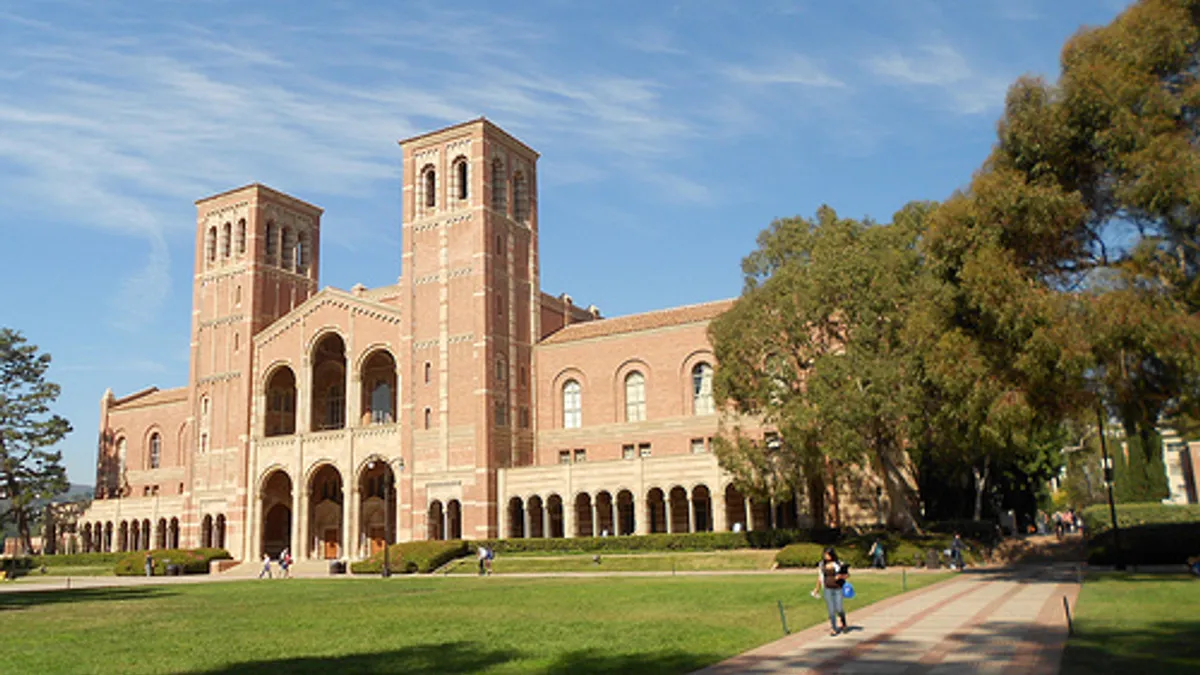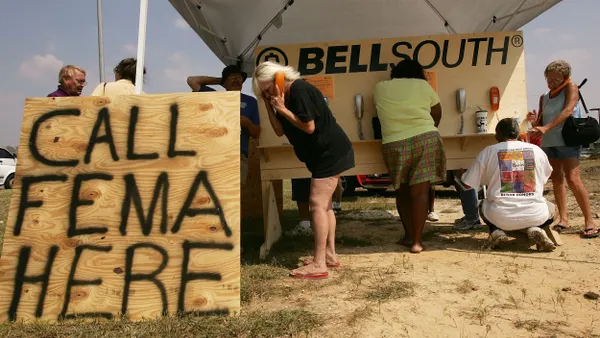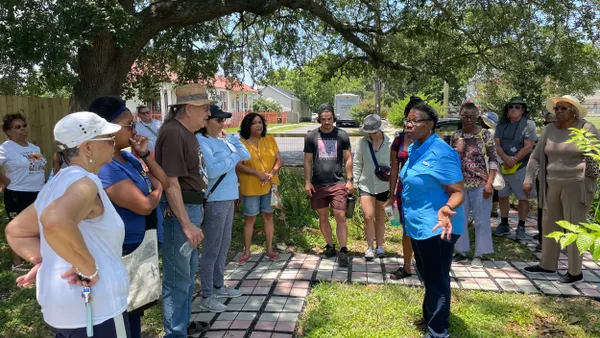Dive Brief:
- UCLA and the Los Angeles Department of Water and Power (LADWP) will collaborate on a $5 million research effort to help the city use more clean energy and manage its water supply more efficiently, including recycling water and increasing water conservation for users.
- The effort is part of the UCLA Sustainable LA Grand Challenge, which has a goal of powering Los Angeles County with 100% renewable energy and making the county water self-sufficient by 2050.
- The fund will establish two committees: one that sets the annual research agenda and budget, and another research advisory subcommittee with membership from major research universities in Los Angeles. Funds will be distributed to academics throughout the city over the next five years.
Dive Insight:
California Gov. Jerry Brown in September signed a bill that set a goal to make the state carbon neutral and powered entirely by clean energy by 2045, outpacing even the target set by Los Angeles. But meeting those goals will take significant research and new government efforts to push the state along. The UCLA research program will include work on electrifying transportation and climate adaptation planning.
More attention to water conservation and storage will be a boon to California, which has been dealing with near-constant drought conditions for years. According to the U.S. Drought Monitor, 63% of the state’s population is currently in drought conditions. While politicians have looked at grand plans such as better water transmission or desalination of ocean water, more efficient storage and conservation-minded use policies will help the state go further with its limited supplies.
Cities are increasingly trying to include water conservation in their sustainability plans, especially as more advanced water meters and leak sensors come online. Planners say they want more advanced and real-time data to make those efforts a reality, and California is working to release and store data from local and state water agencies in one transparent place. No doubt the UCLA research projects will draw on that data to generate solutions that can be applied to other dry cities across the west.










